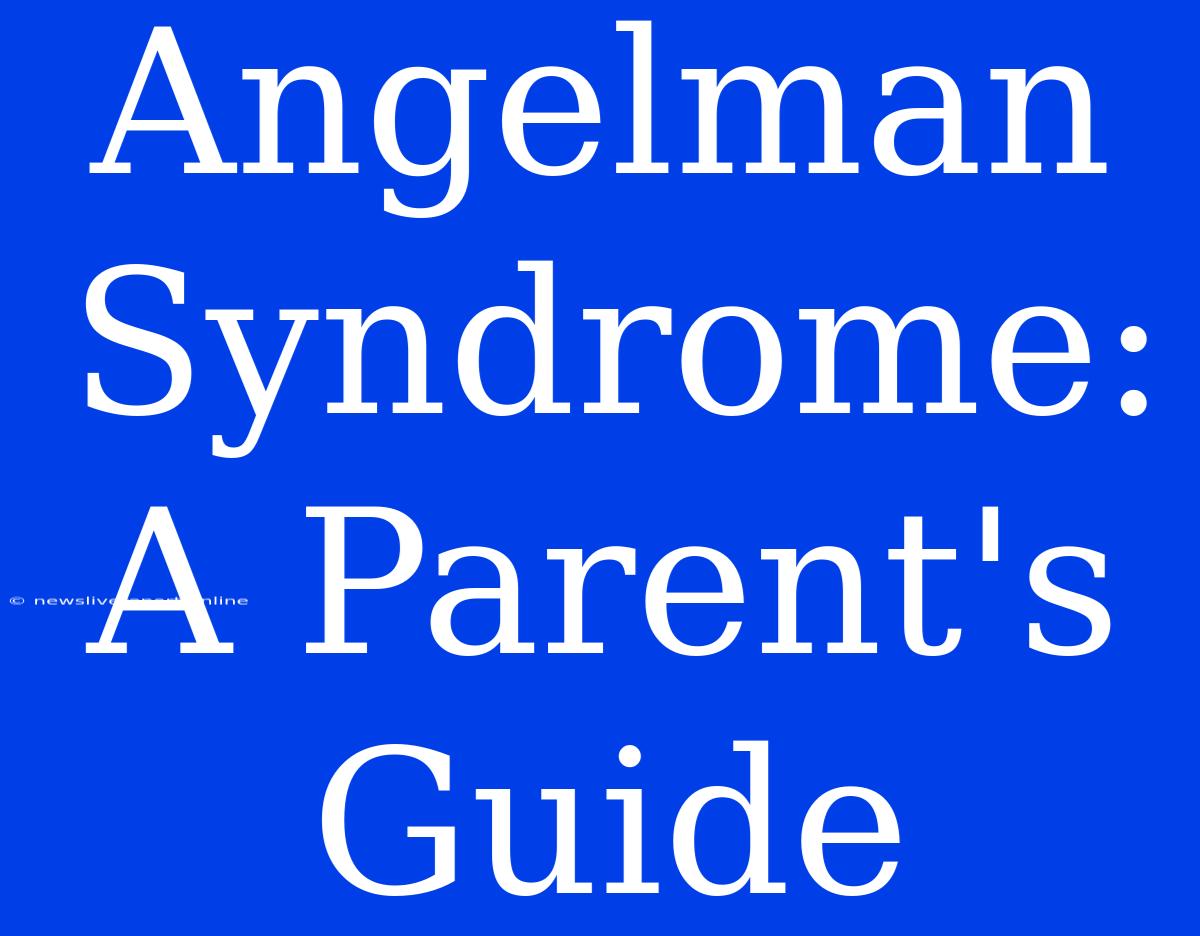Angelman Syndrome: A Parent's Guide
Angelman Syndrome (AS) is a rare neurogenetic disorder that affects a child's development, causing a range of challenges including intellectual disability, developmental delays, and problems with movement and balance. This comprehensive guide will provide parents with essential information about AS, offering insight into its causes, symptoms, diagnosis, and available support systems.
What is Angelman Syndrome?
Angelman Syndrome is a complex genetic condition resulting from a missing or disrupted gene on chromosome 15. This gene, called UBE3A, plays a vital role in brain development. Without it, the brain can't function properly, leading to the characteristic features of AS.
Symptoms of Angelman Syndrome
Children with AS typically display a variety of symptoms, including:
- Developmental Delays: Delayed speech, walking, and sitting milestones.
- Intellectual Disability: Individuals with AS often have a moderate to severe intellectual disability, impacting their cognitive abilities.
- Movement and Balance Issues: They may experience ataxia (poor coordination), jerky movements, and difficulty with balance.
- Happy Disposition: Despite the challenges they face, individuals with AS often have a happy and friendly personality, with a love for laughter and social interaction.
- Characteristic Facial Features: Often, children with AS have a distinctive facial appearance including a wide mouth, large jaw, and protruding tongue.
- Sleep Problems: Difficulty sleeping and frequent nighttime awakenings are common in children with AS.
- Seizures: Some individuals with AS may experience seizures, often starting in early childhood.
Diagnosis of Angelman Syndrome
Diagnosing AS typically involves a combination of clinical evaluation and genetic testing.
1. Clinical Evaluation: A doctor will assess the child's developmental milestones, physical characteristics, and behavioral patterns.
2. Genetic Testing: A blood test is used to confirm the diagnosis by analyzing the UBE3A gene on chromosome 15. This test can detect a deletion, duplication, or mutation in the gene.
Support for Families
Living with Angelman Syndrome presents unique challenges, but numerous resources and support systems are available to help families:
- Support Groups: Joining local or online support groups allows families to connect with others who share similar experiences and gain valuable insights and emotional support.
- Therapies: Various therapies can help individuals with AS develop their skills and abilities, including physical therapy, occupational therapy, and speech therapy.
- Early Intervention Programs: Early intervention programs can provide children with AS with the necessary support to reach their full potential.
- Educational Resources: Parents can find valuable information and resources on AS from organizations like the Angelman Syndrome Foundation and the National Institute of Neurological Disorders and Stroke.
Navigating the Future
While there is no cure for Angelman Syndrome, research continues to explore new treatments and therapies. The future for individuals with AS is hopeful, with advancements in understanding the condition and the availability of support systems. Parents play a crucial role in advocating for their children, providing them with the necessary care and opportunities for growth and development.
Remember: You are not alone. There is a vast community of families and professionals dedicated to supporting individuals with Angelman Syndrome.

